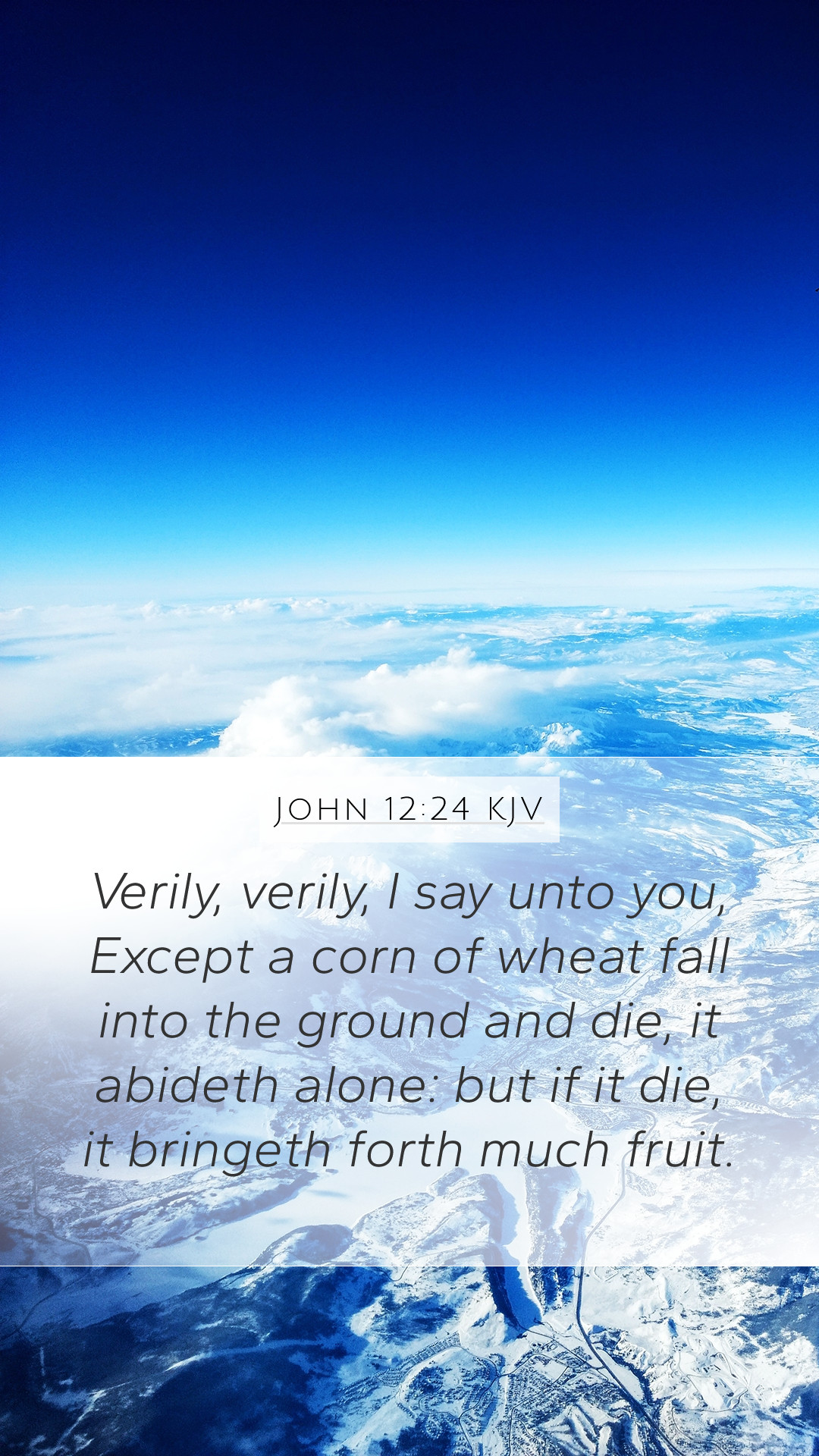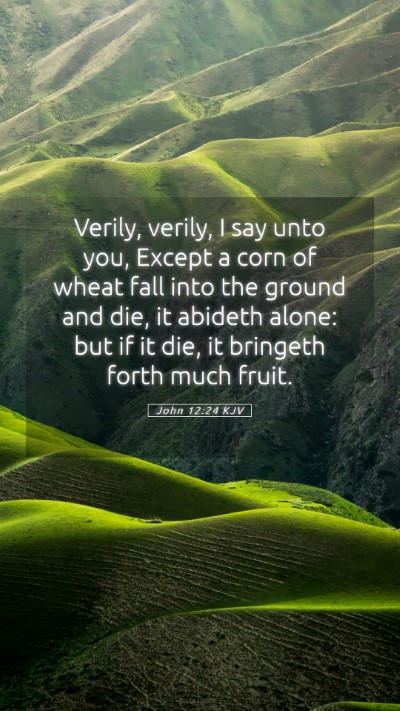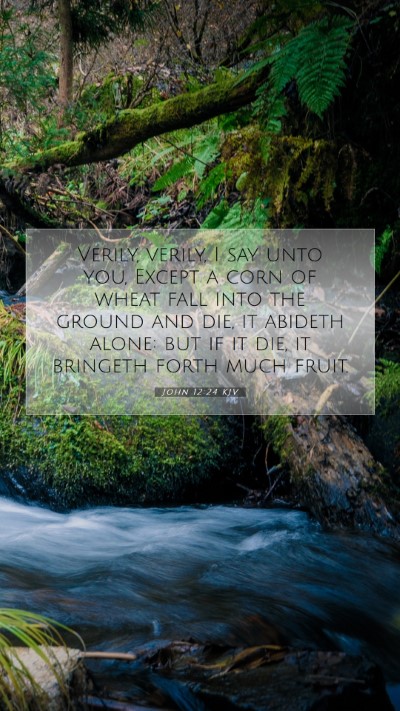Understanding John 12:24 - Bible Verse Commentary
Bible Verse: John 12:24 - "Verily, verily, I say unto you, Except a corn of wheat fall into the ground and die, it abideth alone: but if it die, it bringeth forth much fruit."
Overview: This verse holds profound significance within the context of Jesus' teachings, elucidating the paradox of life through death. It introduces a fundamental concept in Christian theology regarding sacrifice and the promise of new life.
Verse Meaning and Biblical Exegesis
John 12:24 encapsulates the essential truth of Christian faith: life arises from death. Jesus compares himself to a grain of wheat that must fall to the ground, symbolizing his impending crucifixion and the transformative power of sacrifice.
Interpretations from Commentaries
-
Matthew Henry:
Henry highlights that the grain represents Jesus Himself, who must die to produce everlasting life for his followers. He emphasizes the necessity of death for fruitful living and draws a parallel with nature, where what seems like loss leads to abundance.
-
Albert Barnes:
Barnes elaborates on the theme of self-sacrifice, encouraging believers to understand the importance of laying down one's life for others. He points out that the principle of dying to self is essential for spiritual growth and maturity in the faith.
-
Adam Clarke:
Clarke’s commentary reflects on the agricultural metaphor used by Jesus, suggesting that only through death can the life within the seed emerge. He notes that Jesus' message conveys hope and transformation, inviting believers to partake in this cycle of life.
In-depth Analysis
To fully grasp the meaning of John 12:24, it is beneficial to consider the historical and cultural context in which Jesus spoke these words. The statement comes shortly before his crucifixion, serving as a foreshadowing of his death and resurrection. Jesus uses a simple agricultural analogy that his audience would understand, illustrating a deeper spiritual truth.
Application to Daily Life
The application of this verse transcends its immediate context. For modern believers, it challenges them to consider areas in their own lives where they are called to give up their comfort or desires for a greater purpose. It speaks to the heart of discipleship—embracing self-denial and committing to growth through sacrifice.
Significance of Jesus' Teachings
Jesus’ use of the seed metaphor has broader implications regarding the nature of the Kingdom of God. It sets a precedent for understanding numerous parables and teachings throughout the Gospels that emphasize death and resurrection—reflecting the transformative power of faith.
Cross References
- Matthew 16:24-25: Jesus teaches about self-denial and the cost of discipleship.
- John 3:14-15: Jesus compares himself to Moses lifting up the serpent, foreshadowing his own death.
- 1 Corinthians 15:36-38: Paul discusses the transformation that occurs in death and resurrection.
Conclusion
In conclusive remarks, John 12:24 serves as a profound testament to the core principles of the Christian faith—sacrifice, transformation, and hope in resurrection. Through insightful scriptural analysis and theological commentary, believers can glean significant insights into their own lives and the collective journey of faith.
Bible Study Insights
For those involved in Bible study groups or seeking online Bible study tools, reflecting on John 12:24 provides rich material for discussion on themes of sacrifice and spiritual renewal. Engaging with various Bible study resources can aid in deepening one's understanding of such transformative scripture.


